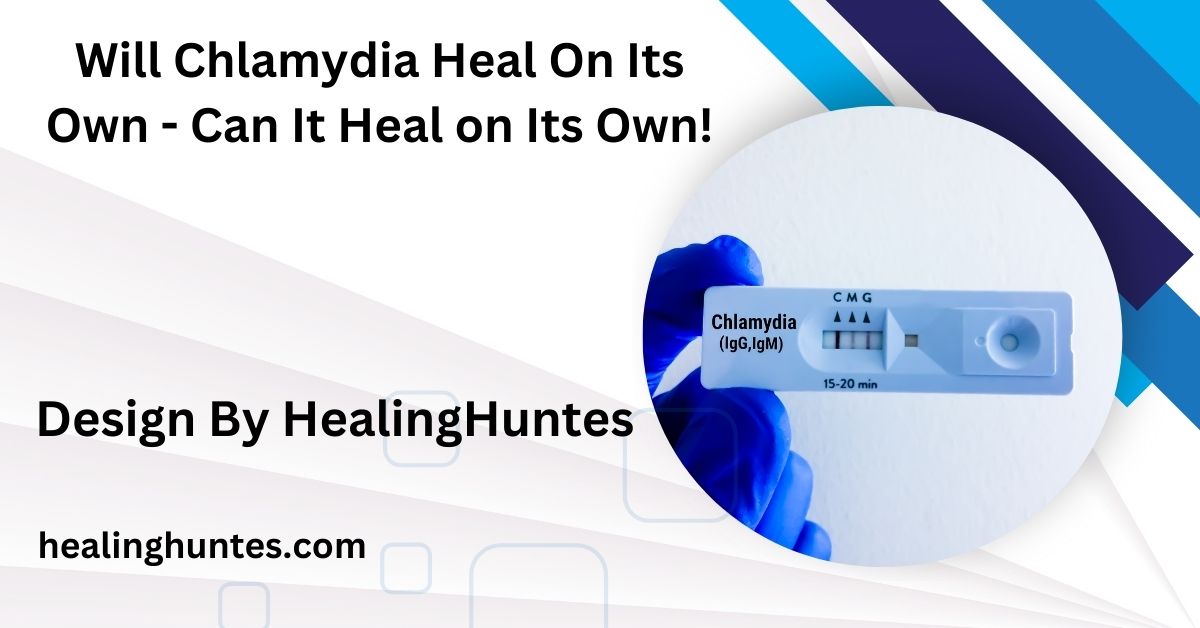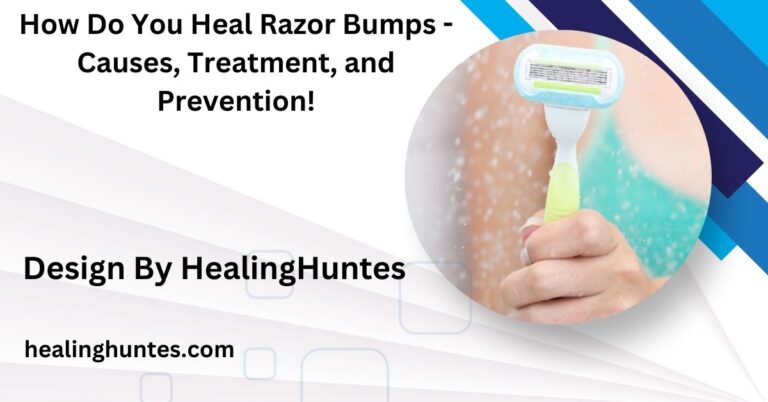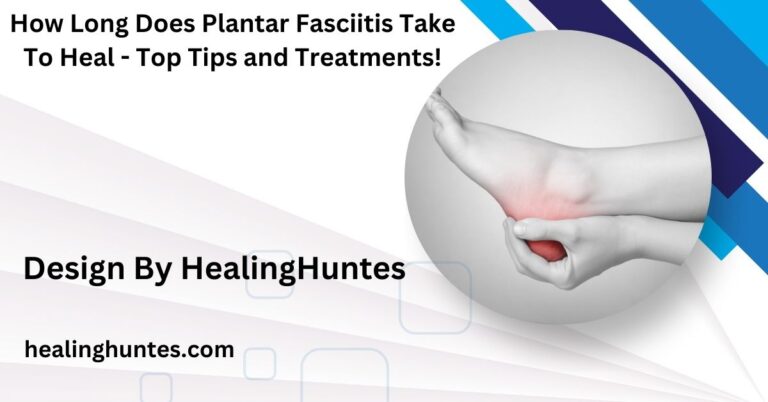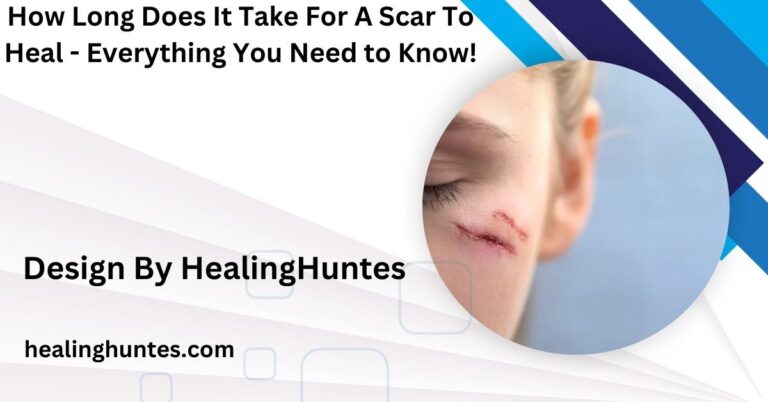Will Chlamydia Heal On Its Own – Can It Heal on Its Own!
Chlamydia will not heal on its own and requires medical treatment with antibiotics. Left untreated, it can lead to serious health issues.
In this article, we will explore the answer to that question, provide insight into how chlamydia is treated, and discuss important information about the potential consequences of untreated chlamydia.
How would you explain Chlamydia in simple terms:
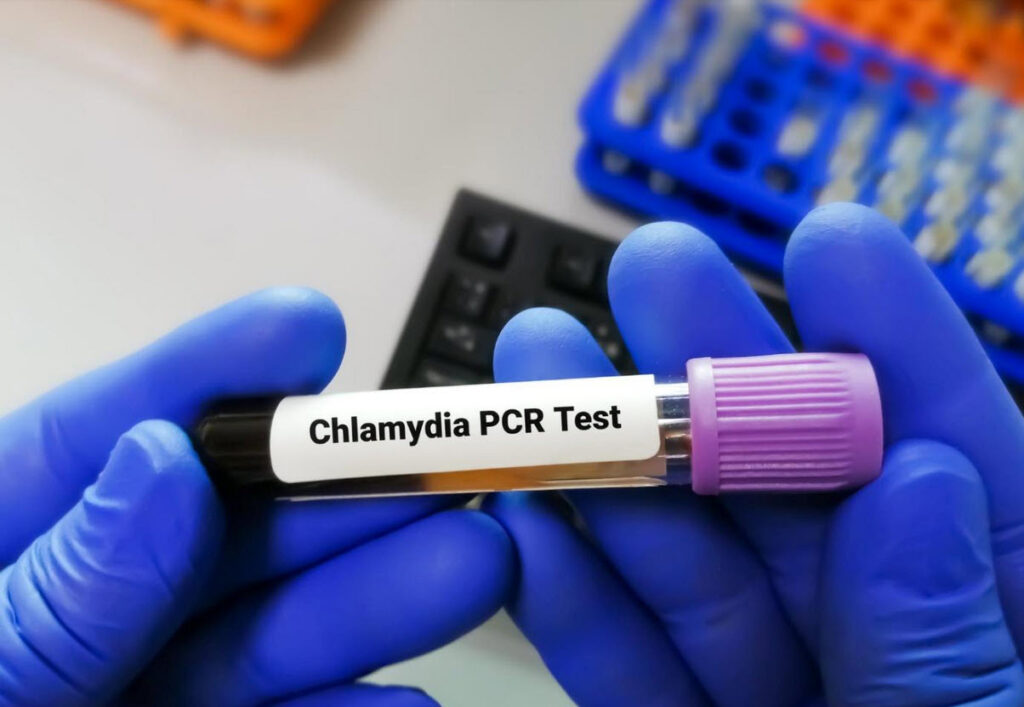
Chlamydia is a bacterial infection that primarily affects the reproductive organs. In women, it can infect the cervix, uterus, and fallopian tubes, while in men, it most commonly affects the urethra. The infection is usually transmitted through unprotected vaginal, anal, or oral sex with an infected person. Since it often doesn’t show symptoms, many people may not know they are infected, which can lead to the spread of the disease.
Can Chlamydia Heal on Its Own:
The short answer is no, chlamydia will not heal on its own. While the body’s immune system may be able to control some bacterial infections, chlamydia requires medical treatment to be fully cleared. Without proper treatment, the infection can lead to long-term health issues, such as pelvic inflammatory disease (PID) in women, which can result in infertility. In men, untreated chlamydia can cause epididymitis, which can affect fertility as well.
How is Chlamydia Treated:
Chlamydia is typically treated with antibiotics, which can be taken orally in the form of pills. Doctors often prescribe antibiotics like azithromycin or doxycycline to treat chlamydia. These medications work by killing the bacteria causing the infection.
- Azithromycin: This antibiotic is often prescribed as a single dose, which makes it a convenient treatment option.
- Doxycycline: This antibiotic is usually prescribed in a course of 7 days, with doses taken twice daily.
It is important to follow your healthcare provider’s instructions carefully and complete the entire course of antibiotics, even if you start feeling better before finishing the medication. Stopping antibiotics prematurely can lead to a relapse of the infection or antibiotic resistance, making it harder to treat in the future.
Also Read: How Long Does It Take For Wrist Sprain To Heal – A Detailed Examination!
Why Is It Important to Treat Chlamydia:
Treating chlamydia as soon as possible is crucial for preventing complications. Untreated chlamydia can lead to severe health problems, including:
- Pelvic Inflammatory Disease (PID): In women, untreated chlamydia can spread to the uterus and fallopian tubes, leading to PID, which can cause chronic pain and infertility.
- Infertility in Men and Women: Both men and women can face fertility problems if chlamydia is left untreated. For women, the risk of infertility increases with the development of PID, while men may experience epididymitis, which can affect sperm production.
- Increased Risk of HIV: Untreated chlamydia increases the risk of contracting or transmitting HIV. This is especially true for individuals who engage in unprotected sex.
- Pregnancy Complications: Chlamydia during pregnancy can lead to premature birth, low birth weight, and the transmission of the infection to the newborn during delivery.
What are the signs and symptoms of Chlamydia:
Chlamydia often goes unnoticed because many people don’t experience symptoms. When symptoms do occur, they can vary depending on the individual and the site of infection. Common symptoms of chlamydia in women include:
- Abnormal vaginal discharge
- Painful urination
- Pelvic pain
- Bleeding between periods
In men, chlamydia symptoms may include:
- Discharge from the penis
- Painful urination
- Pain or swelling in the testicles
If you notice any of these symptoms, it is important to get tested for chlamydia. A healthcare provider can perform a simple urine test or a swab to diagnose the infection.
How can Chlamydia be prevented?

The best way to prevent chlamydia is by practicing safe sex. Using condoms consistently and correctly during vaginal, anal, and oral sex significantly reduces the risk of chlamydia transmission. Regular STI screenings are also recommended, especially if you have multiple sexual partners or are at higher risk of contracting STIs.
- Use condoms: Always use condoms during sex, whether vaginal, anal, or oral, to reduce the risk of chlamydia and other STIs.
- Get regular screenings: If you are sexually active, getting tested for STIs regularly is essential, even if you don’t have symptoms.
- Mutual monogamy: Having only one sexual partner who is free of STIs can help lower the risk of chlamydia and other infections.
Can Chlamydia Recur After Treatment?
Yes, chlamydia can recur after treatment if a person is exposed to the bacteria again. This is why it is essential to practice safe sex and ensure that both partners are treated before resuming sexual activity. After receiving treatment for chlamydia, wait at least 7 days before having unprotected sex to ensure the infection is fully cleared.
Also Read: Is Skin The Fasting Healing Organ – A Deep Dive!
When Should You See a Doctor?
If you suspect you have chlamydia or have been exposed to someone with the infection, you should see a doctor for testing. Even if you do not have symptoms, getting tested regularly is important for your health and the health of your partner(s). Early detection and treatment are key to avoiding complications.
FAQ’s
1. Can I treat chlamydia without seeing a doctor?
No, chlamydia requires medical treatment with antibiotics. It is important to see a healthcare provider for a proper diagnosis and prescription.
2. What happens if I don’t treat chlamydia?
If left untreated, chlamydia can cause serious complications, including infertility, chronic pain, and an increased risk of HIV.
3. How long does it take for chlamydia to heal with treatment?
With proper treatment, chlamydia typically clears up within 7 to 10 days. It is essential to complete the full course of antibiotics.
4. Can chlamydia be transmitted even without symptoms?
Yes, chlamydia can be transmitted even if a person has no symptoms. This is why regular testing and safe sex practices are important.
5. Will chlamydia come back after treatment?
Chlamydia can recur if you are re-exposed to the bacteria. Always practice safe sex and ensure both partners are treated before resuming sexual activity.
Conclusion
Chlamydia requires timely treatment with antibiotics to prevent serious health complications. It will not heal on its own, and delaying treatment can lead to infertility, chronic pain, and other risks. Practicing safe sex and getting regular STI screenings are essential for prevention. Seek medical advice immediately if you suspect an infection to ensure effective treatment and recovery.
